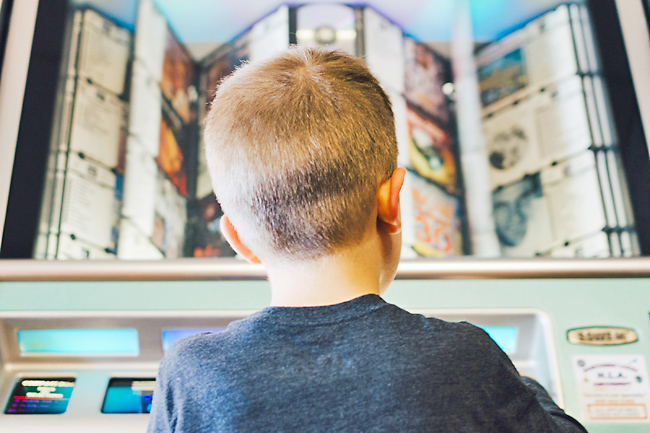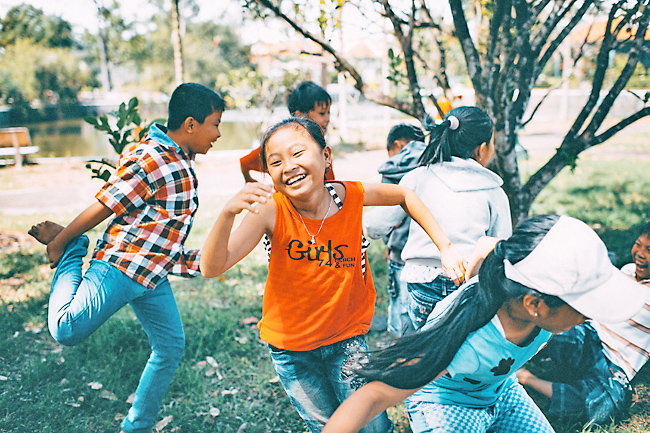Amy Paturel
THE WASHINGTON POST – With three school-age sons, a sort of soundtrack played at our house every morning. “Guys, please get your shoes on. It’s time to go.” Silence. Then, a little louder: “Guys, shoes!” After a few rounds of this, our neighbours could probably hear me roar: “Boys! It’s time to go!”
This went on for months. I gave patient parenting tactics an earnest try. I thought my children would eventually fall in line. Then, out of sheer frustration one morning, I began crooning It’s a Beautiful Morning, and they perked up. I had learned the power of melody.
Whether I’m waking them up in the morning (Rise and Shine) or trying to calm them before a doctor’s appointment (Hakuna Matata), I break out in song. Unorthodox, maybe.
But it turns out that this approach to getting my children, 10-year-old twins and an almost-eight-year-old, to rally isn’t unfounded. A 2020 study shows that music boosts listening, cooperation and trust among people of all ages.
I’d be lying if I said my children march to attention every time they hear me singing, but music has become a powerful tool in my parenting arsenal – and for good reason.
According to Patrick Savage, director of the Keio University CompMusic Lab in Japan, children are especially wired to forge connections based on song. By two or three, kids can reproduce songs their parents sing, and they’re more fluent in song than in speech.



Like many children, my boys are rowdy, loud and easily distracted. But in the sometimes painful slog of parenting, I’ve discovered that music is more than just a way to command my kids’ attention and encourage them to follow instructions. It’s a way to connect with them at a level that’s more in tune with the development of their minds.
People are inherently rhythmic. Our hearts beat in a rhythm, and we walk at a steady pace, often with easy cadence and grace. So it makes sense that many of us instinctively speak to our babies in a sort of singsong, and that when our children are fussy, we rock them and sing.
When my children were infants, I belted out the same nonsensical ditty my mom used to sing to me; by the time they were toddlers, they could clap along to it with me.
“Music speaks to children in the areas of the brain that process sound and emotion, which are both fully developed at birth,” said Joan Koenig, the founder and director of the American Conservatory preschool and kindergarten in Paris and the author of The Musical Child.
“The thinking centre of the brain doesn’t come on board until the mid-to-late 20s. But with music, we have this tool that engages children in a language they can understand and feel through vibration.”
Before my children could talk, the “language” we shared evolved into a musical banter. I listened to their babbles and tried to echo the sounds I heard.
This type of musical mirroring not only makes for cute videos that sometimes go viral, but it also shows your children that you’re really listening – that you hear them and are following their lead.
Add movement to the mix – whether that means dancing with your infant, pushing your child on a swing or rowing with your teen – and you’ll create an interpersonal synchrony, or an instance when your sensations or movements overlap, that bonds you together, said Tal-Chen Rabinowitch, assistant professor at the School of Creative Arts Therapies at the University of Haifa in Israel. So it seems there’s a relational benefit to the nightly dance parties we started when our twins became toddlers – a ritual we continue to this day, though usually with Minecraft music.
Savage’s research suggests that the benefits of incorporating music into parenting include more than bonding. “Music taps into the emotional and memory centres of the brain, so information and instructions delivered through song are more likely to stick,” he said. The way it works is reminiscent of Ivan Pavlov’s dogs. Children hear a specific tune, and they know what to do.
For years, educators have recognised that whether you’re teaching children a new language or to stand in line, information is better learned – and retained – through melody. At Koenig’s school, teachers have songs for sitting down, standing up and going to the park.
They even use raps, complete with choreography, to help children learn multiplication tables. “The proof that it works is in your own memory,” Koenig said. Consider this: How did you learn your ABCs, and do you still remember them?
In 1993, a study published in Nature even suggested that playing Mozart made children smarter. The movement was so powerful, scientists called it the Mozart effect. But according to Psyche Loui, director of the Music, Imaging and Neural Dynamics Lab at Northeastern University, there’s nothing special about Mozart. Instead, it seems that early exposure to music, particularly in the form of musical activity and training, may have benefits that extend beyond children’s intelligence.
While researchers continue to dispute whether music can boost IQ, there’s no doubt that the developing brain evolves in part based on rhythmic interactions. “Plenty of studies show that formal music training enhances cognitive skills,” Rabinowitch said.
“But our work shows it also enhances children’s capacity for emotional empathy. And we know from other research that joint music making, and specifically interpersonal synchrony, increases cooperation and helpful behaviour among children.”
If you’ve ever sung in a choir, played in a band or sung loudly in a bar with duelling pianos, chances are you’ve experienced the high that comes from becoming part of the music.
It turns out that the art of making imperfect music with another person, something Koenig calls “musicking”, releases feel-good hormones that bond people together.
It’s also a surprisingly mindful pursuit. “When you’re making music with other people, your thoughts don’t stray, because you’re drawn into the orbit of synchronisation, and that requires focus and attention,” Koenig says.
Whether you choose to sing pop culture hits or bang pots and pans, synchronising with children through musicking triggers the brain’s reward system. The result: Your children may be more agreeable, and you may be less likely to snap – at least in theory.
“The key is to aim for play, not performance,” Rabinowitch said. “When making music is designed for the interaction itself, not for producing a piece of music, it becomes a social-emotional language.” In fact, studies show that music facilitates communication for infants and toddlers. So maybe it has a similar effect on tweens entering puberty – or even on full-blown teenagers.
Rabinowitch said my hope has merit. “Music is so connected with mood and emotional regulation that it can act as a mediator when parents and children are feuding,” she said.
“It affords less argumentation than verbal language, and it can allow space for different interpretations and ambiguity.”





